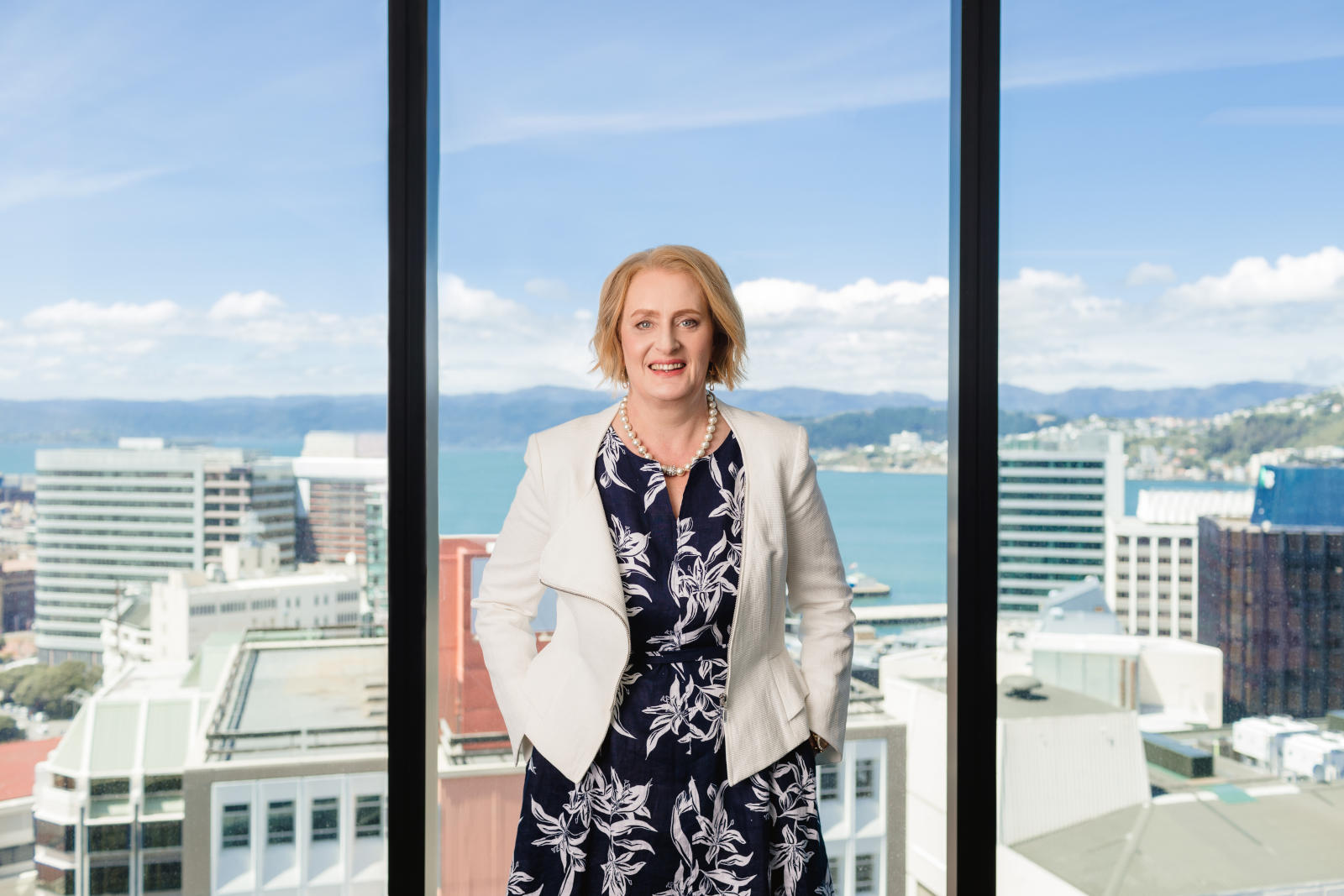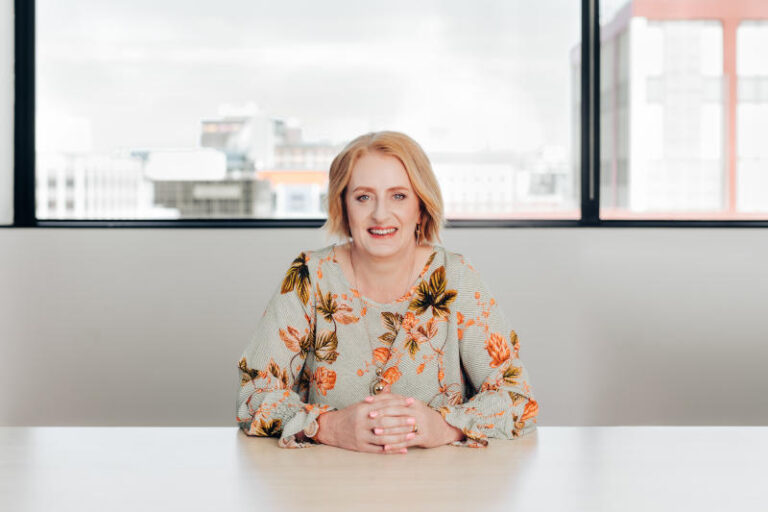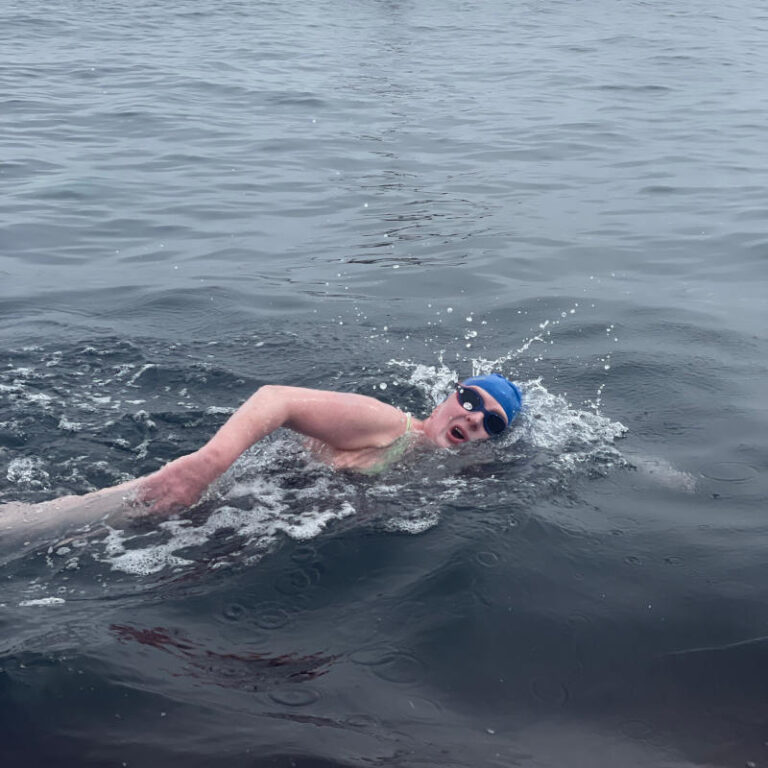
In 1987, aged 17, Grainne Moss became the first woman from Ireland to swim the English Channel. That achievement, she says, has stood her in good stead throughout her career.
“It got me my first job. Probably my second one. And probably my third one too,” she says.
It was also the start of a long-distance swimming career that is still in progress. In July this year, she swam the 35-kilometer North Channel between Northern Ireland and Scotland, followed in August by the 21-kilometer Fastnet Swim off Ireland’s southern coast.
In New Zealand, where she now lives, she has completed its Triple Crown of marathon swimming – the Cook Strait, between the country’s North and South islands, across Lake Taupo, its largest lake, and the Foveaux Strait at the southern end of the South Island.
That swimming, however, is just one part of a life that has been spent moving backwards and forwards between the public and private sectors, from the UK to New Zealand, acquiring an MBA in Switzerland and having a family with four children.

Career moves
Born near Belfast in Northern Ireland, Moss went to university in Liverpool, then started her career in the UK’s National Health Service, first as a graduate management trainee and then as a manager commissioning health services.
That was followed by three years with PwC as a health and social services consultant. A brief spell in New Zealand persuaded her and her husband to move there full-time in the late 1990s.
Looking to broaden her experience, she decided to try out the commercial sector, joining Carter Holt Harvey, then New Zealand’s second biggest listed company. Aged 30, she was put in charge of running a US$400 million turnover forestry business.
“I was one of very few female leaders in the industry,” she says. “It was a tough male environment. It was a pressure cooker.” But the pressure worked. “You’re a piece of coal and you’re getting shaped into something more valuable.”
“I had a couple of the major customers who thought that they would run me out of town pretty quickly.” That didn’t happen. Instead Moss stayed three years, eventually leaving after a company restructuring.
It was that point, aged 33, that Moss decided the time was to acquire an MBA. “I’d learned and been exposed to so much. I’d worked really hard. I wanted to consolidate and build on that experience,” she says
She picked IMD after visiting several business schools. “Having had the blessing of that tough major P&L experience [at Carter Holt Harvey], what I found sitting in a room with eight or nine other potential candidates for IMD was markedly different from the MBA candidates elsewhere,” she says Moss.
“They were a bit older and had more operational experience. They had managed people, managed budgets, run things, made hard calls and faced adversity in business.”
Her time in Lausanne was a rich experience. “You couldn’t unpack it all in just one year, but then a couple of years later you would say to yourself ‘Oh, right. That’s what that strategy professor was doing. I’m able to apply that thinking to this problem, because he insisted on teaching us how to learn, not teaching us the answer.’”
One aspect that still stands out was the group work. “What was interesting about that was you had to rank each other, not rate each other. That brought into stark relief what contributions people were making and how they were valued,” says Moss.
“Being able to dig into [decisions] and really critically assess them and ask tough questions of the team is something that I wouldn’t be able to have done if I hadn’t gone to IMD,” she says.
“The frankness of those conversations had implications that were also particularly useful for leadership. That direct feedback from your fellow peers about both [your] positives and the areas that you need to improve in terms of how you impacted them had a level of honesty that you’re never going to get anywhere else.”
Another of the highlights was IMD’s counselling. “I loved the 20 hours of kind of psychotherapy that we got. It’s really important to understand what are the things that drive you, as opposed to what things you think are driving you, and also what really irritates you, because then if [are aware] you’re being irritated, you can step back – making decisions when you’re emotional is never a good thing.”
A year after completing her MBA, Moss returned to New Zealand and a nine-year spell with international health care group Bupa, first running its care homes division and then as managing director of its care services arm, working across Australasia and Europe.
Then it was back into the public sector, first for four years as chief executive of the Ministry for Children, then in 2021 to her current job, as Chief Executive and Systems Lead, Pay Equity at New Zealand’s Public Service Commission, overseeing claims from public and private sector work forces to be paid appropriately for the work they do.

Staying the course
Looking back over her career to date, Moss picks out resilience and patience as two of her key qualities. “I’m a loyalty person, I’m a stayer. I don’t turn up in organizations and leave after a little while. I like to belong and I like to make a difference. [For that], I believe that you need to be there for a decent period of time. You need to live with your mistakes and their consequences – that really helps you grow.”
Her long-distance swimming helped her with this. “It’s a long game. You don’t swim the English Channel in one day, you have to do all the training beforehand. You can’t just train for a day then take the weekend off.”
But persistence can pay off. “Swimming the English Channel changed my life. It gave me something very definitive to fall back on when stuff goes wrong. It brings me perspective, it may be a tough day and I may feel down but I remember – I have tackled big challenges – I’m the first Irish woman to have swum the English Channel. No one can take that away from me.”


